Filter by
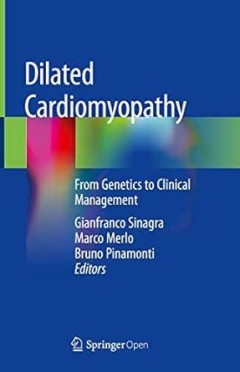
Dilated Cardiomyopathy = From Genetics to Clinical Management
This open access book presents a comprehensive overview of dilated cardiomyopathy, providing readers with practical guidelines for its clinical management. The first part of the book analyzes in detail the disease’s pathophysiology, its diagnostic work up as well as the prognostic stratification, and illustrates the role of genetics and gene-environment interaction. The second part presents c…
- Edition
- 1
- ISBN/ISSN
- 9783030138646
- Collation
- IX, 241 ill; hlm
- Series Title
- -
- Call Number
- -
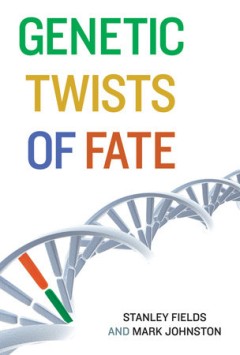
Genetic twists of fate
How tiny variations in our personal DNA can determine how we look, how we behave, how we get sick, and how we get well.News stories report almost daily on the remarkable progress scientists are making in unraveling the genetic basis of disease and behavior. Meanwhile, new technologies are rapidly reducing the cost of reading someone's personal DNA (all six billion letters of it). Within the nex…
- Edition
- -
- ISBN/ISSN
- 9780262289382
- Collation
- 1 online resource (ix, 222 pages) :illustrations, map
- Series Title
- -
- Call Number
- -

Fables and futures :biotechnology, disability, and the stories we tell ourselves
How new biomedical technologies--from prenatal testing to gene-editing techniques--require us to imagine who counts as human and what it means to belong. From next-generation prenatal tests, to virtual children, to the genome-editing tool CRISPR-Cas9, new biotechnologies grant us unprecedented power to predict and shape future people.OCLC-licensed vendor bibliographic record.
- Edition
- -
- ISBN/ISSN
- 9780262351799
- Collation
- 1 online resource (240 pages).
- Series Title
- -
- Call Number
- -
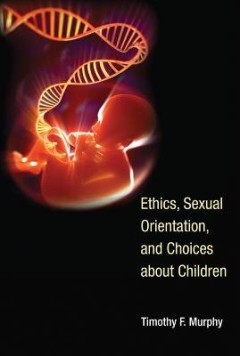
Ethics, sexual orientation, and choices about children
Parents routinely turn to prenatal testing to screen for genetic or chromosomal disorders or to learn their child's sex. What if they could use similar prenatal interventions to learn (or change) their child's sexual orientation? Bioethicists have debated the moral implications of this still-hypothetical possibility for several decades. Some commentators fear that any scientific efforts to unde…
- Edition
- -
- ISBN/ISSN
- 9780262305822
- Collation
- 1 online resource (195 pages).
- Series Title
- -
- Call Number
- -
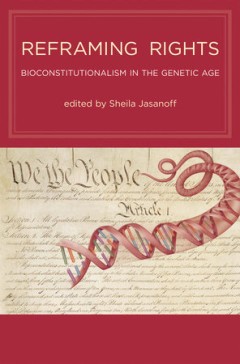
Reframing Rights: Bioconstitutionalism in the Genetic Age
Legal texts have been with us since the dawn of human history. Beginning in 1953, life too became textual. The discovery of the structure of DNA made it possible to represent the basic matter of life with permutations and combinations of four letters of the alphabet, A, T, C, and G. Since then, the biological and legal conceptions of life have been in constant, mutually constitutive interplay -…
- Edition
- -
- ISBN/ISSN
- 9780262298667
- Collation
- 1 online resource (x, 310 pages).
- Series Title
- -
- Call Number
- -

Genomic citizenship :the molecularization of identity in the contemporary Mid…
"In the contemporary Middle East, genetics research on ethnic populations is changing the way groups understand and imagine their ethnic identities and places of belonging"--OCLC-licensed vendor bibliographic record.
- Edition
- -
- ISBN/ISSN
- 0262366703
- Collation
- 1 online resource.
- Series Title
- -
- Call Number
- -

Inequality :a genetic history
"New genomic studies on ancient remains are unveiling different forms of inequality that were prevalent in the past and have shaped the genomes of humankind"--OCLC-licensed vendor bibliographic record.
- Edition
- -
- ISBN/ISSN
- 0262369176
- Collation
- 1 online resource.
- Series Title
- -
- Call Number
- -
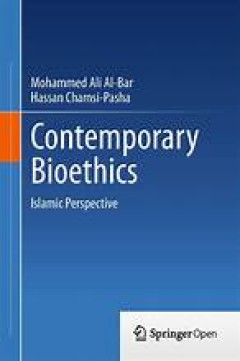
Contemporary Bioethics
This book discusses the common principles of morality and ethics derived from divinely endowed intuitive reason through the creation of al-fitr' a (nature) and human intellect (al-‘aql). Biomedical topics are presented and ethical issues related to topics such as genetic testing, assisted reproduction and organ transplantation are discussed. Whereas these natural sources are God’s specia…
- Edition
- 1
- ISBN/ISSN
- 978-3-319-18428-9
- Collation
- Kedokteran
- Series Title
- -
- Call Number
- 617

Next Generation Sequencing in Cancer Research, Volume 2
Latest generation sequencing revolutionizes the fields of cancer research and oncology. This follow-up volume focuses more extensively on single cell sequencing of cancer and trials in drug resistance. Another exciting feature is the bioinformatics tools given, that can be used on cancer genome studies. Scientists around the world are attempting to find the root cause of cancer. A reasonable ca…
- Edition
- 1
- ISBN/ISSN
- 978-3-319-15811-2
- Collation
- Kedokteran/ Obat
- Series Title
- -
- Call Number
- 615
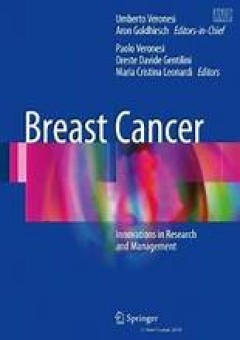
Breast Cancer
- Edition
- 1
- ISBN/ISSN
- 978-3-319-48848-6
- Collation
- Kedokteran
- Series Title
- -
- Call Number
- 617
- Edition
- 1
- ISBN/ISSN
- 978-3-319-48848-6
- Collation
- Kedokteran
- Series Title
- -
- Call Number
- 617
 Computer Science, Information & General Works
Computer Science, Information & General Works  Philosophy & Psychology
Philosophy & Psychology  Religion
Religion  Social Sciences
Social Sciences  Language
Language  Pure Science
Pure Science  Applied Sciences
Applied Sciences  Art & Recreation
Art & Recreation  Literature
Literature  History & Geography
History & Geography